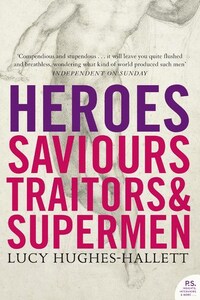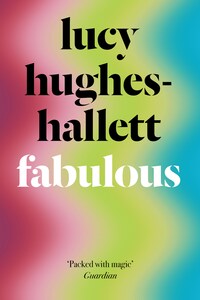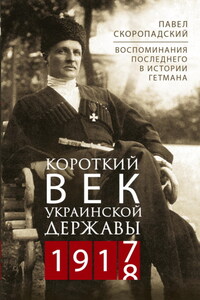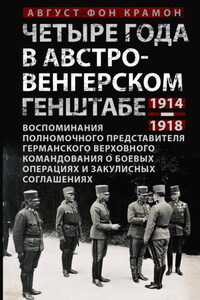âRAGE!â THE FIRST WORD of the Iliad, the word that inaugurates Europeâs literary culture and introduces one of its dominant themes. The rage not of Agamemnon, king and commander, but of Achilles, the semi-divine delinquent, the paradigmatic hero whose terrible choice of glory at the price of an early death has haunted the collective imagination of the West for two and a half millennia.
Heroes are dynamic, seductive people â they wouldnât be heroes otherwise â and heroic rage is thrilling to contemplate. It is the expression of a superb spirit. It is associated with courage and integrity and a disdain for the cramping compromises by means of which the unheroic majority manage their lives â attributes that are widely considered noble. It is also, and therefore, profoundly disruptive of any civil state. Homerâs Achilles was the âthe best of the Achaeansâ, the pre-eminent Greek warrior, but his rage was directed, not against his peopleâs enemies, but against Agamemnon, his peopleâs leader. The Iliad is a celebration of Achillesâ lethal glamour: it is also the story of how he came close to occasioning the defeat of the community of which he was the most brilliant representative.
This book is about Achilles and some of his real-life successors (whether Homerâs hero really lived we are unlikely ever to know for certain). It takes the form of a series of brief lives of people who have been considered by their contemporaries (and in most cases by posterity as well) to be exceptionally, even perhaps supernaturally, gifted and so to be capable of something momentous â the defeat of an enemy, the salvation of a race, the preservation of a political system, the completion of a voyage â which no one else could have accomplished. In 411 BC the people of Athens resolved to recall Alcibiades, whom they had once condemned to death and who had subsequently fought with devastating success for their opponents, because, as one of their commanders told the Assembly, he was âthe only person livingâ who could save their state. So the eleventh-century King Alfonso VI of Castile turned to Rodrigo DÃaz, known as the Cid â a man he had twice banished â when African invaders poured into Spain, because whatever threat the Cid posed to the stability of the kingdom he was known to have been âborn in a happy hourâ and could therefore never be defeated. And so in 1630 the Holy Roman Emperor Ferdinand, having first nerved himself to dismiss his overweening and intransigent General, Albrecht von Wallenstein, had then to humble himself by imploring Wallenstein to resume his command and save the empire from the onslaught of the invading Swedes, something that, by common consent of all his enemies (he had few friends), Wallenstein alone could hope to do.
Cometh the hour, cometh the man. It is in times of emergency that heroes are looked for, and found. Bertolt Brecht wrote, famously, that it is an unhappy land that looks for heroes. The dictum is ambiguous, and works both ways. A land without heroes may be fortunate in their absence, for a hero is a menace to any stateâs equilibrium. âThe Argonauts left Heracles behindâ, noted Aristotle, for the same reason that the Athenians took to ostracizing and sending into exile outstanding citizens, âso the Argos would not have on board one so vastly bigger than the rest of the crew.â But only a fortunate land is confident enough to dispense with heroes. At the time of writing it is fashionable to lament the littleness of those accorded celebrity within our culture â so many footballers and rock stars and models, so few great spirits â but such collective frivolity should be cherished as one of the privileges of peace. It is desperation that prompts people to crave a champion, a protector, or a redeemer and, having identified one, to offer him their worship.
Virtue is not a necessary qualification for heroic status: a hero is not a role model. On the contrary, it is of the essence of a hero to be unique, and therefore inimitable. Some of the people whose stories are told in this book were irreproachable, others were scoundrels. Cato had the highest moral standards and adhered to them as nearly as could possibly be expected. Garibaldi was a man of signal sincerity, although he was not quite so transparently simple as his admirers imagined. (Alfred Lord Tennyson, meeting him in 1864, was delighted to recognize in him the â










